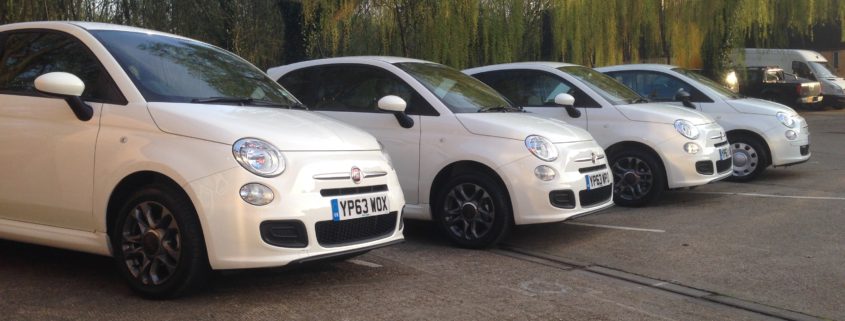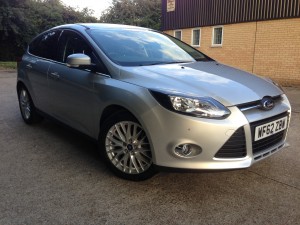First Car Buying Guide
Buying your first car? Then this is the guide for you!
Ask anyone what they had as their first car, and they will talk with great affection about it, including its imperfections! So, with such an important purchase, its important to get it right. Here we explore the significance of budgeting and choosing the right car to look good, feel great and still have money in your back pocket for the weekend!
Financial Planning
No matter how you are funding your new purchase, you will need to set yourself a budget and stick to it! It’s a tough balancing act between wanting the perfect car with all the bells and whistles, and a sensible choice that comes within your plan and provides for those unavoidable running costs. You will need to consider:
Car Insurance – this will be the highest cost after your initial purchase and it’s expensive for the under 25’s. Gocompare.com states that the cheapest average annual premium for a 17-year old driver in 2017 was £2,209!
Road Tax – Unless the car is in Band A, electric or built before 1973, there will be a cost of between £20-£555.
MOT – If the car is over 3 years old it will need an annual MOT to ensure its roadworthiness. The maximum charge is £54.85, with many testing centres charging £40/45.
Tyres – driving with unroadworthy tyres is illegal and can result in a £2,500 fine and 3 points on your licence, per tyre!
Fuel – this is very unlikely to go down in price, so budgeting for your expected consumption is essential.
How can you make savings?
MOT
Choose a testing station based on reputation and recommendation, rather than price. It can be a false economy to chose a £20 MOT and end up with a larger repair bill!
Fuel
Choose a car with good fuel consumption. Follow basic eco-driving tips and consider car sharing (including sharing fuel cost).
Tyres
Although these can be expensive, and maybe even considered a dull purchase, they are vitally important as your only contact with the road. With regular maintenance, the AA suggest you should be able to get 20,000 miles out of front tyres on a front wheel drive car and around twice that on the rear tyres.
- Check pressures regularly – under or over inflation increases wear.
- Check for uneven tread wear – worn suspension or incorrect alignment will cut tyre life and increase fuel consumption
- Drive gently – avoid hard cornering and braking.
Never be tempted to purchase part-worn tyres, many have serious defects.
Servicing and Repair
Annual servicing is essential and will keep running and repair costs down. The AA recommend finding a good independent garage as main dealers are often expensive.
Servicing standards vary from garage to garage, so ensure your chosen reputable garage works to the manufacturer’s specification. Find a garage with fixed cost servicing which includes all parts, labour and VAT. This ensures there are no nasty surprises and helps with budgeting.
Contrary to popular belief, a good independent garage is able to maintain your car without invalidating your warranty.
A qualified Technician will be able to identify any defects before they become serious. This is excellent news as a good garage will be able to inform you in advance of any future work required enabling you to budget for the repair.
Timing Belt and Tensioner
These must be changed at manufacturers age or mileage, whichever comes first. They should be changed at the same time as they are both just as likely to break. Should either part fail, it could lead to serious and expensive engine damage.
Warning Lights
These should never be ignored as they tell you that something is wrong! Always check the handbook before continuing to drive. As a guide, red means stop and immediately get the fault repaired. Amber usually means you are ok to complete your journey, but the fault should be checked before you drive again.
Insurance
Insurance for teens is unavoidably expensive. According to research by the Transport Research Laboratory, teenage drivers represent only 1.2% of drivers, but alarmingly account for 12% of accidents. Although, you can’t avoid your age, there are things you can do to reduce your insurance premium:
Thatcham Research decides which cars fit into which group. There are 50 groups determined by the car’s performance, price, safety, security and cost of repairing. The lower the number the lower the premium.
You could opt for a limited-mileage policy, but there are severe penalty charges should you go over and the policy becomes invalid if you do not inform them.
Setting a higher excess is common, but ensure it is at a level that you can afford should you have an accident.
Insure a secondary responsible driver, although you do need to ensure that it is someone who will actually drive the car. Don’t be tempted to put a parent on as the main driver if the car really is for the child. This is called ‘fronting’ and an insurance fraud.
Black boxes are very popular to reduce premiums. They monitor how you drive and the premium goes down with good driving, but be warned that it also goes up with poor driving.
Choosing your Perfect Car!
This is the exciting part! You now have a budget and a firm idea on maintenance costs, now starts the search for a new set of wheels!
Try and narrow down your search by identifying your non negotiables and those features that are ‘nice to have’. Identify brand, model and be prepared to compromise – you’re not going to find a 3-year old Golf with low mileage for under £1,000, so prevent yourself from becoming disappointed and be realistic about what you can achieve.
New Cars
If you are in the market for a new car, then your local dealership is possibly the easiest place to go to get the latest deals. It will come with a warranty so that any niggles can be resolved at no cost to yourself. Don’t be afraid to check it over for dings and scratches before you leave – it is much harder to prove that it happened before hand once you have driven off. The car decreases in value as soon as you drive it off the forecourt. After 3 years on the road, a second-hand car is typically worth 30-40% of the original price, so it could be wise to let someone else take the financial hit and buy a used car.
You may consider purchasing your new car with a PCP (personal contract purchase). This enables a low monthly payment and you can decide whether to hand the car back at the end or pay the final payment to own the car. Alternatively, if the value of the car at the end of the term is greater than the final payment, the difference could be used on a new deal.
There are some great deals on PCP some of which include the cost of insurance in a single monthly payment. Take a look at Peugot’s Just Add Fuel scheme. It incorporates the cost of the car, insurance and servicing. Other brands have similar but may not incorporate servicing costs. Take a look at Fuel & Go for alternatives.
Used Cars
The majority of teens will gravitate towards a used car. The internet is a great place to start to identify what your budget will realistically achieve. There are plenty of private sellers on GumTree, Autotrader, FreeAds, etc. Auction houses are certainly fun to go to and you can pick up a good bargain. However, buying from a seller really is a case of ‘buyer beware’ with very little recourse should anything go wrong. At Auction all vehicles are ‘sold as seen’ with no protection at all.
The safest way to purchase is through a reputable garage, where you enjoy legal protection and peace of mind. These car dealers are bound by the Sale of Goods Act to ensure everything they sell is:
Of satisfactory quality – in keeping with its age, make, mileage, etc
Fit for purpose – the vehicle is capable of carrying out all the functions you would expect
Legal to drive – it should meet all legal standards
Matches its description – all components mentioned in the ad should be in good working order.
The dealer is not liable for wear and tear or any misuse.
If buying from a used car dealer you will get a 3-month warranty and if they have their own workshop you can rest assured that the car is in a good safe condition through a pre-delivery inspection, or some will give the car a fresh service which is great for peace of mind.
Because purchasing privately has limited legal constraints, buyers should:
Check all documentation is in order. Registered to the seller, details should match the car, current MOT, etc.
MOT History – is the mileage consistent with the age and look of the car. Does it match the service history.
Bodywork – check for a consistent colour and evenness across the panels, can you see any rust under the footwell mats or welding.
Tyres – check consistent sufficient tread depth. Remember this would be an additional cost if they need replacing.
Tool Kit – complete and present with spare tyre
Lights – check all lights are fully functioning and ensure there are no warning lights showing on the dashboard
Functional – does everything work? Washers, locks, windows, air con, radio, etc.
Ask for a test drive and look out for:
Clutch – test biting point is where it should be and not before it is almost fully engaged (a sign of wear and in need of replacement)
Performance – ensure the car doesn’t pull to one side on acceleration and listen out for abnormal sounds and vibrations. Take the car over 60mph to listen for any further unusual sounds.
Gears – these should feel smooth
Brakes – these need to be responsive and stop without pulling to one side
Steering Wheel – vibrations should not be present.
Which cars are lowest insurance group?
These may vary from insurer to insurer and also depends on the model you choose, so it is always recommended to check the actual model you are purchasing before buying. However, as a rule of thumb, look for the lowest engine size of the current category 1 cars (from boughtbymany.com):
| 1. | Vauxhall Corsa Hatchback
|
7. | Skoda Citigo
|
| 2. | Fiat Panda
|
8. | Volkswagen Up
|
| 3. | Citroen C1
|
9. | Seat Mii
|
| 4. | Nissan Micra
|
10. | Volkswagen Fox
|
| 5. | Smart ForFour
|
11. | Hyundai i10
|
| 6. | Kia Rio
|
12. | Ford KA+ |
Whichever car you purchase, do your homework! Know your budget, including maintenance costs, and be realistic about what you can get. A first car is more than owning a car, it’s a sense of freedom and independence… enjoy it!
If you need any help, ask the experts at Redbourn Auto Solutions and we would be pleased to help. We even orientate your teenager around their new car ensuring they are able to perform basic checks and have a budgeting plan where monthly payments can ensure a reduced burden of maintenance costs.
Give us a call to find out more on 01582 679300. Happy motoring!





